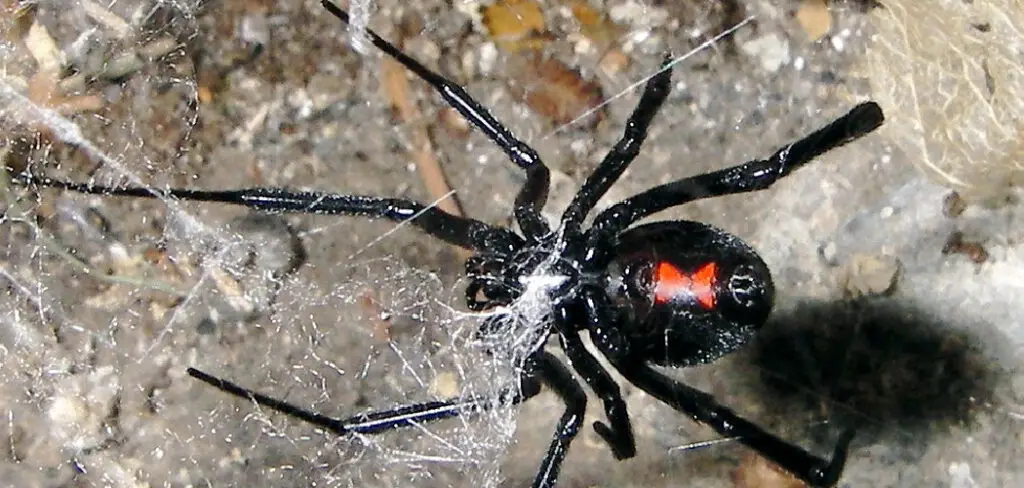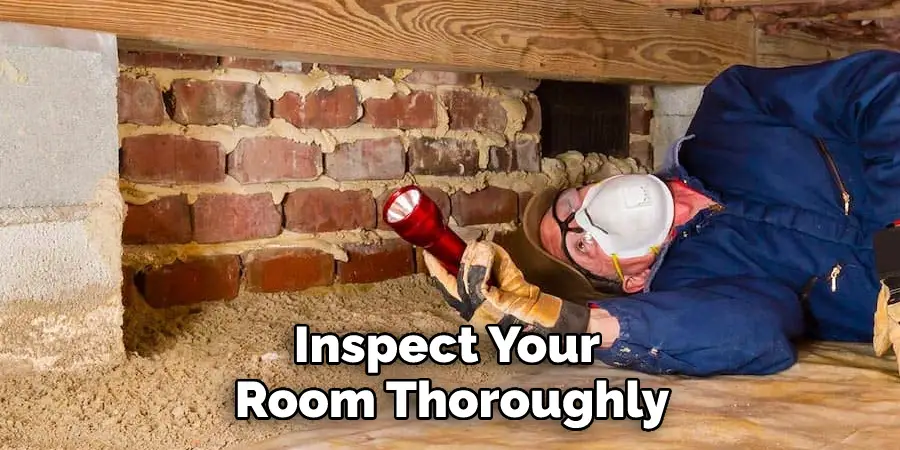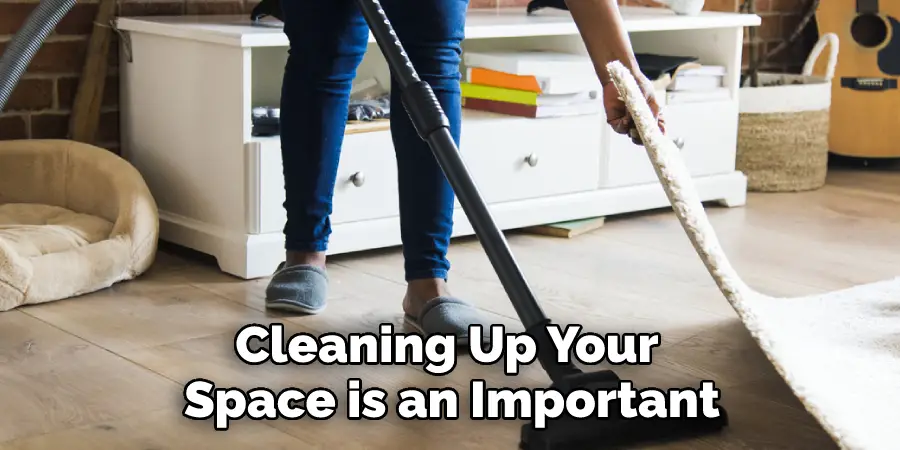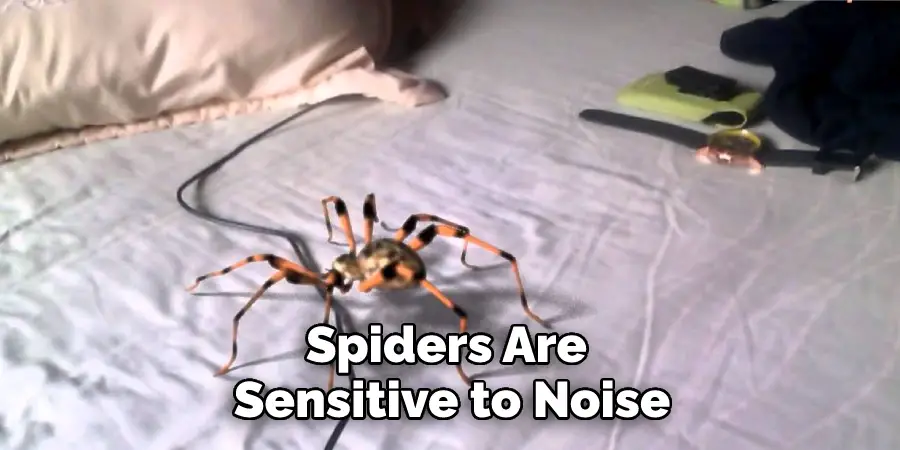Finding a spider in your room can be an unnerving experience—but it doesn’t have to be. If you take the right steps, you can quickly and easily ensure that any spiders in your space stay contained and out of sight.

In this blog post, we’re going to cover everything you need to know about how to find a spider in your room, ensuring they don’t become a nuisance and ultimately ridding yourself of their presence entirely if necessary.
So whether you just want some peace of mind or are currently dealing with a more serious spider infestation, keep reading for all the tips and tricks needed!
Can You Find a Spider in Your Room?
If you’re like most people, you probably don’t expect to find a spider in your room. It’s unsettling for many people to see eight-legged creatures crawling across the floor or near your bed. However, spiders may be more common than you think.
Creepy crawlers often hide away in corners, behind furniture or clothes, and even under beds during their inactive period of the day. However, looking around with a flashlight late at night can help reveal any unwanted guests that have taken up residence in your home.
And if you do spot one – don’t worry! Spiders aren’t necessarily dangerous, and they actually play an important role in the environment by preying on insect pests – but some homeowners still opt to trap them and release them outside of their homes just in case.
Why Should You Find a Spider in Your Room?
A spider in your bedroom can be alarming initially, but it’s important to remember why it should be welcomed. Spiders are incredibly helpful in eliminating pests from homes – they catch and eat mosquitos, flies, moths, and other pesky critters.
Additionally, their webs help keep the dust down, adding an extra level of cleanliness to the room. To prevent the spider population from getting out of hand, finding them (and immediately releasing them outdoors) is necessary instead of allowing them to live within your home.
Finding a spider in your room can certainly be surprising; however, you can rest assured knowing that they are doing good work.
Needed Materials:
Before you begin your search for spiders, make sure you have these materials on hand:
A Flashlight:
A flashlight is essential for searching dark corners and under furniture where spiders may be hiding.
A Vacuum:
If you don’t want to trap the spider and release it outside, a vacuum can be used to suck up the arachnid. Just make sure to use a tube attachment so that the spider doesn’t get caught in the bristles of a regular brush. It’s also recommended that the vacuum be emptied outside after use, just in case the spider is still alive.
A Glass and a Piece of Paper:
If you choose to trap the spider and release it outside, you will need a glass or jar that is large enough to cover the spider. Place a piece of paper over the opening of the glass and slide it underneath to trap the spider inside. Then, simply take the glass outside and release the spider.
10 Tips to Follow on How to Find a Spider in Your Room
1. Inspection of the Room
The first step is to inspect your room thoroughly with an eye out for any signs of spiders. Look under furniture and around corners, as spiders like dark, secluded areas.

Be sure to look near windows and doorways because spiders often come in through small cracks near those entry points. Pay special attention to any crevices or cracks that could offer a hiding spot for the spider.
It’s also essential to clean up any clutter in the room, as this can provide hiding spots for spiders and other pests. You can also use a flashlight to shine into hard-to-reach areas and see if there are any spiders present.
2. Most Common Types of Spiders
Once you’ve done an inspection of the space, it’s important to know what specific type of spider you may be dealing with since different species require different removal methods.
Some common household spiders include house spiders, wolf spiders, cellar spiders, jumping spiders, and funnel-web spiders. House and cellar spiders are generally harmless but can still be annoying if present in large numbers; wolf and jumping spiders will bite if provoked; and funnel-web spiders can be quite dangerous if left unchecked.
It’s also worth noting that some types of poisonous or venomous spiders may be present depending on where you live—so do some research before attempting any removal yourself!
3. Bright Lights
If you’re having trouble pinpointing the location of a spider, use bright lights to help you spot them. Spiders often come out at night and can be hard to locate in dark corners. Use a flashlight or similar device to cast light on potential hiding spots—you may just find your eight-legged guest!
You can also use a flashlight to look for spider eyes, which will reflect the light and make them easier to spot. But be careful not to shine the light directly into their eyes, as this can startle them.
4. Catch and Release
If you manage to catch the spider, you can release it outside instead of killing it. It’s important to be careful when handling any type of spider, even if it is not poisonous—use gloves or a long-handled tool to move them out. Place the container with the spider far away from your home to ensure that it doesn’t make its way back in.
It’s also important to remember that spiders play an important role in our ecosystem, so if possible, try to release them back into their natural habitat rather than just outside your home.
5. Use Traps
You can also use traps to catch and keep spiders out of your house. Glue strips, funnel-shaped traps, or other types of traps can be used depending on the type of spider you’re dealing with. Place traps near potential hiding spots, such as in corners or near webs, and check them frequently.
You can also make your own trap with a glass jar and a piece of paper. Place the jar over the spider, slide the paper underneath to cover the opening, and then release it outside. It’s a humane and safe way to remove spiders from your room.
6. Keep the Area Clean
Cleaning up your space is an important step in preventing future spider infestations. Remove any clutter that may offer a hiding place for spiders, and vacuum regularly to remove any webs and eggs that may be present. Keep food sealed and stored away, and ensure that all windows and doors are properly sealed to help reduce the number of spiders in your room.

The cleaner the environment, the less attractive it will be to spiders.
7. Seek Professional Help
If you’re still having trouble finding or getting rid of spiders, it may be time to seek professional help. Qualified technicians can advise and assist in ridding unwanted guests of your room. They will also be able to identify the type of spider present and suggest how best to deal with it. Additionally, professionals can use stronger and more effective methods to eliminate the spider population.
You may also want to consider calling a professional if you have an infestation of poisonous spiders or if you are not comfortable dealing with the situation yourself.
8. Plant Natural Repellants
Placing certain plants around your room can help repel spiders naturally. Some plants that are known to deter spiders include lavender, eucalyptus, peppermint, and lemon balm. These plants emit scents that spiders don’t like and can help keep them away from your living space.
It’s also worth noting that spiders dislike strong smells, so you can also try using essential oils like tea tree, citronella, or cedar to keep them at bay.
9. Close Gaps and Cracks
One of the best ways to prevent spiders from entering your room is to close up any gaps or cracks in walls, windows, or doors. Spiders can easily squeeze through small spaces, so sealing these openings will help keep them out.
But be sure to use a natural sealant, as some chemicals can harm or even kill spiders. You can also use caulk, weather stripping, or door sweeps to further seal any potential entry points.
10. Stay Calm
Lastly, it’s important to stay calm when dealing with spiders in your room. As mentioned earlier, most spiders are harmless and play a valuable role in the ecosystem. Take a deep breath, follow these tips, and you’ll be able to safely remove any unwanted arachnids from your living space.
That’s it! You’ve now learned how to find a spider in your room and how to get rid of it. With these tips, you can be sure that no eight-legged visitors will take up residence in your space any time soon!
Spider Removal Options
Once you’ve identified what kind of spider might lurk in your home, several options exist for removing them from your space. You can use chemical repellents or natural remedies such as essential oils or diatomaceous earth to deter them from returning to your room once they’ve been removed.
If all else fails, then professional pest control services may be necessary for more severe infestations or dangerous species like black widows or brown recluse spiders.
Things You Need to Know Before Finding a Spider in Your Room
Finding a spider in your room can be an unnerving experience, but it is important to remain calm. Before squashing the arachnid, remember that spiders are essential predators of other tiny insects and play a key role in controlling insect populations.
Furthermore, due to its hypersensitive hairs and legs, it is virtually impossible for a spider to bite humans unless extreme force is applied. If you still feel uncomfortable with the spider’s presence, take a glass jar or bowl to scoop up the spider and release it outside in its natural environment instead of killing it.

Knowing these facts about spiders can help you make a more informed decision and have a greater appreciation for their contribution to the balance of nature.
Benefits of Finding a Spider in Your Room
When you find a spider in your room, it may not feel like the greatest thing to have to happen. However, it can be as beneficial as it may feel initially bothersome! Spiders are natures own pest-control, trapping and consuming insects such as flies, moths, mosquitoes, and other bugs.
Through this process of natural control, these spiders help keep other pests away from the area and thus contribute to a healthier indoor environment for humans and animals alike.
Furthermore, due to their web’s spinning habits which act as a filter for dust particles in the air, having spiders in your home helps improve the air quality overall. In short, even though having spiders in your room may seem like a nuisance at first, they offer great benefits and should be viewed more favorably than with dread!
5 Common Mistakes People Make When Trying to Find a Spider in Your Room
1. Not Checking All the Places Spiders Could Be
When you’re looking for a spider in your room, it’s important to check all the places they could be. This includes under furniture, corners, and cracks or crevices. Spiders can also be found in closets, so be sure to check there as well.
2. Not Using a Flashlight
Looking for a spider in a dark room will be difficult, so be sure to use a flashlight. This will help you see all the nooks and crannies where spiders like to hide.
3. Moving Too Much Furniture
If you’re looking for a spider in your room, you may be tempted to move furniture around to get a better view. However, this can actually make it harder to find the spider, as they may have moved while you were moving the furniture. If possible, try to avoid moving too much furniture while you’re looking for the spider.
4. Making Too Much Noise
Spiders are sensitive to noise and will likely run away if they hear you coming. So, when you’re looking for a spider in your room, try to be as quiet as possible. This will help you to avoid scaring the spider away before you have a chance to catch it.

5. Giving Up Too Soon
Finding a spider in your room can be challenging, but it’s important not to give up too soon. If you don’t find the spider immediately, keep looking until you do. It’s better to be safe than sorry when it comes to removing spiders from your living space.
Frequently Asked Questions:
Q: What Do I Do if I Find a Spider in My Room?
A: If you find a spider in your room, try to stay calm. You can use one of the methods mentioned above to remove it or seek professional help if necessary. You can also choose to leave the spider alone, as they are beneficial for controlling other pest populations.
Q: Are Spiders Dangerous?
A: Most spiders found in homes are harmless and will not bite unless provoked. However, if you’re unsure about the type of spider in your room or are experiencing symptoms from a bite, it’s best to seek professional medical help.
Q: How Can I Prevent Spiders From Entering My Room?
A: To prevent spiders from entering your room, make sure to keep it clean and clutter-free. Seal any cracks or crevices where spiders may enter, and use natural deterrents such as essential oils or diatomaceous earth. Regularly vacuuming and dusting can also help to keep spider populations under control.
Q: How Do I Identify What Kind of Spider is in My Room?
A: The best way to identify a spider is by its physical characteristics, such as the number and arrangement of its eyes and the shape and color of its body. You can also take a photo of the spider and consult with a local pest control professional or use online resources for identification. It’s important not to handle the spider if you’re unsure of its species, as some spiders can be dangerous.
Conclusion
Finding a spider in one’s home can be alarming but doesn’t necessarily have to spell disaster! By inspecting your space more closely and identifying what type of spider is present (if any), you’ll be better equipped with knowledge on how best to handle the situation at hand safely and effectively—whether it involves DIY solutions or professional help!
So don’t fret too much if you think there’s something creepy-crawly around—just follow this guide and get back on track quickly! Thanks for reading our post about how to find a spider in your room.
